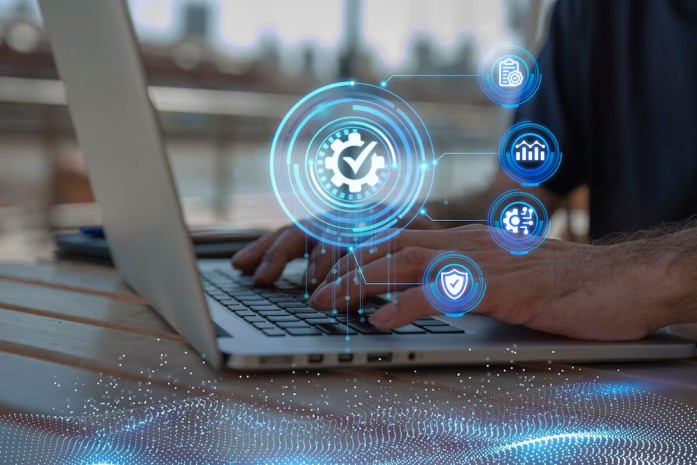In the ever-evolving business landscape, organizations in Indonesia face a myriad of risks that threaten their operations, reputation, and ultimately, their success. Navigating this complex environment requires a comprehensive and proactive approach to risk management. One such essential tool is the ISO 27001 certification, which has emerged as a game-changer in strengthening corporate risk management in Indonesia.
The Imperative of Risk Management in Indonesia
As Indonesia’s economy continues to grow, companies across various sectors face an array of risks, including cyber threats, data breaches, regulatory changes, and operational disruptions. These risks can have severe consequences, ranging from financial losses and reputational damage to legal liabilities and operational downtime.
Effective risk management is, therefore, a critical component of a company’s strategic planning and operational execution. By identifying, assessing, and mitigating these risks, organizations can protect their assets, ensure business continuity, and maintain stakeholder trust. However, many Indonesian companies struggle to implement a robust and comprehensive risk management framework, leaving them vulnerable to the ever-evolving threat landscape.
The ISO 27001 Certification: A Bulwark Against Corporate Risks
The ISO 27001 certification is an internationally recognized standard that outlines the requirements for establishing, implementing, maintaining, and continually improving an Information Security Management System (ISMS). This comprehensive framework provides organizations in Indonesia with a structured approach to safeguarding their information assets, including sensitive data, intellectual property, and critical systems.
By achieving ISO 27001 certification, Indonesian companies can demonstrate their commitment to information security and their ability to manage risks effectively. Here’s how the ISO 27001 certification can strengthen corporate risk management in Indonesia:
- Comprehensive Risk Assessment: The ISO 27001 standard requires organizations to conduct a thorough risk assessment, identifying and prioritizing potential threats to their information assets. This process enables companies to develop a deep understanding of their risk landscape and implement targeted controls to mitigate these risks. Without a clear understanding of the risks they face, Indonesian companies may struggle to allocate resources effectively and implement the necessary safeguards.
- Robust Information Security Controls: The ISO 27001 standard outlines a comprehensive set of security controls, ranging from access management and encryption to incident response and business continuity planning. By implementing these controls, Indonesian companies can enhance the resilience of their information systems and reduce the likelihood and impact of security incidents. This is particularly crucial in an environment where cyber threats are on the rise and the consequences of a data breach can be severe.
- Compliance and Regulatory Alignment: In an increasingly regulated business environment, the ISO 27001 certification helps Indonesian companies align their information security practices with relevant laws and regulations, such as data privacy laws and industry-specific requirements. This alignment not only mitigates the risk of non-compliance but also enhances the company’s credibility and trustworthiness, which is essential for maintaining stakeholder confidence.
- Improved Stakeholder Confidence: The ISO 27001 certification serves as a tangible proof of an organization’s commitment to information security and risk management. This can significantly enhance the trust and confidence of customers, business partners, and investors, who are increasingly scrutinizing the security practices of the companies they engage with. In a market where reputation and trust are crucial, the ISO 27001 certification can provide Indonesian companies with a competitive edge.
- Competitive Advantage: In the Indonesian market, where information security is a growing concern, the ISO 27001 certification can provide companies with a competitive edge. By demonstrating their ability to safeguard sensitive information and manage risks effectively, these organizations can differentiate themselves from their competitors and attract more business opportunities. This is particularly important in industries where data security and privacy are critical, such as finance, healthcare, and e-commerce.
Navigating the Path to ISO 27001 Certification in Indonesia
Achieving ISO 27001 certification in Indonesia is a strategic investment that requires a well-planned and disciplined approach. Organizations should begin by assessing their current information security practices, identifying gaps, and developing a comprehensive plan to address them. This may involve training employees, implementing new technologies, and revising policies and procedures.
Throughout the certification process, it is essential to engage with experienced consultants and auditors who can provide guidance and ensure compliance with the ISO 27001 standard. By working closely with these experts, Indonesian companies can navigate the complexities of the certification process and unlock the full benefits of this powerful risk management framework.
Conclusion
In a rapidly evolving business landscape, the ISO 27001 certification has emerged as a crucial tool for strengthening corporate risk management in Indonesia. By implementing this comprehensive information security standard, organizations can safeguard their assets, ensure business continuity, and enhance stakeholder confidence. As Indonesian companies continue to navigate the challenges of the digital age, the ISO 27001 certification stands as a strategic investment in their long-term resilience and success.


